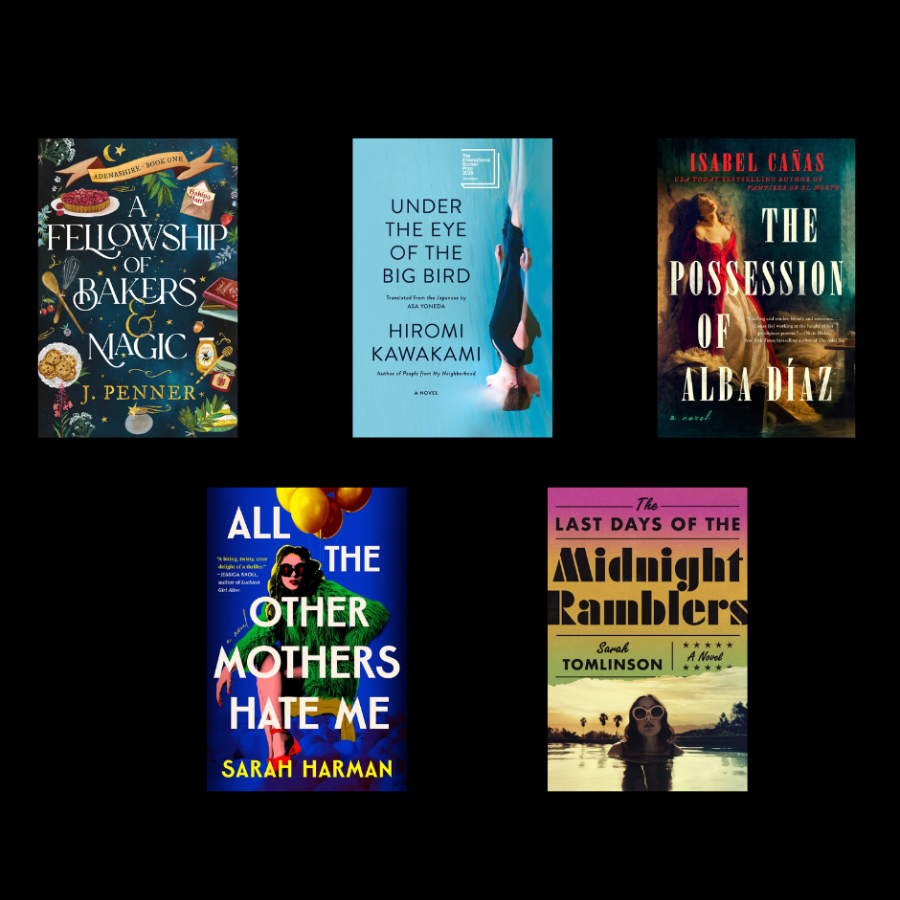This post may include affiliate links, which means we make a small commission on any sales. This commission helps Feminist Book Club pay our contributors, so thanks for supporting small, independent media!
or an actual summer reading list…
By now, you’ll have heard about the AI-generated summer reading list that got published in a Chicago (print!) newspaper and featured on multiple news websites. You’ll likely also have heard that two thirds of that reading list was entirely fictional.
Except that isn’t quite true either. Every author that on that “summer reading list” is a real best selling author. Some of the books are also real. See: Hurricane Season, attributed to Brit Bennett (author of The Vanishing Half), but actually written by Fernanda Melchor (and a previous FBC pick). The synopsis attached was entirely fictional, at least in relation to this book and both authors. The Longest Day is alo an actual a book, but it’s by Cornelius Ryan, not Rumaan Alam.
Strangely, all of the “previous works” attributed to the authors in the synopses are genuine and correctly attributed, 8 times! The writer’s nationalities/ diaspora and the genres they tend to write in are also correct, where mentioned. So how did AI get this list so wrong and how was it not caught in the research, writing, and editing process?
How the Heck Did This Happen?
The book list causing all this hubbub was a syndicated article, licensed from a content provider, and run by multiple publications. Syndication isn’t a new thing and is commonplace in all types of news media, from print papers to radio broadcasting to TV.
What’s telling is that the summer reading list in question appeared, rather unfortunately, just two days after the paper in question announced the loss of 20% of their writing staff due to fiscal hardship of the parent company. But while the ability to pay staff has reduced, the demand for content has not.
This is where syndicated content comes in. Because it is generic enough to be published in multiple places without too much trouble, it can easily be used to fill in content gaps at a publication. The fact remains, however, that this content still requires research and a human hand to produce.
Or so we thought.
What’s unusual is that this particular summer reading list appears to have been entirely produced by some form of an AI large language model, like ChatGPT. In fact, the writer responsible for the piece, Marco Buscaglia, has taken some responsibility, revealing that he uses AI for research purposes, though he claims the article was only produced “in part” by AI.
Good Bookish Content Takes More Than the Press of a Button
As a content creator myself, I find this hard to believe. I like to think that I would not publish or even submit anything in which the first two-thirds were absolute fictional nonsense (some of my podcast rants notwithstanding, of course!). But even if I did, and despite being part of a relatively small team, egregious mistakes would be caught during the editing process.
In addition, we tend to actually read the books we recommend to our audiences, or at the very least we research them and their authors.
And therein lies the crux of the issue: Making content takes a lot more time and effort than the average consumer realises. For example my review of The Stone Witch of Florence required that I read a 362-page novel whilst taking notes. Then I drafted the article, which can take several hours. I also produced the pictures that appeared with it and formatted everything in draft. Finally, I submitted it to our editorial team.
This wasn’t the end of the road for the piece, though. Our editor read the review and reached out to me with edit requests and questions — a process that can span multiple days — before finally scheduling out the post. This prompted a third person to prepare and schedule additional content for our social media accounts and for our online community, announcing the new blog post.
As you can see, it takes hours of work over several weeks just to get a 4-minute blog post out into the world. So imagine the potential work involved in recomending a list of books. Now imagine that freelance content creation and journalism is your primary income. You can see the temptation to cut corners.
AI’s Growing Impact
These days, many people are eagerly outsourcing their thinking to large language model AIs, having ChatGPT do their homework, write papers, or even write their shopping lists for them. Part of the issue, though, is that at their core, large language models are really just pattern recognition software. They aren’t intelligent and they do not know how to distinguish correct information from incorrect information that is fed through their training packets. And the training datasets are haphazardly accumulated from all over the internet, including places like Reddit. Hardly a bastion of, well, anything except cats (note: I love both Reddit and cats; don’t come for me in the comments!). The point being, AI will just fill in the blanks with whatever looks like it can fit.
Unfortunately, some people treat ChatGPT like Google, and they don’t fact check their results. Which is how we get 10 entirely made-up books. (Or how we get in trouble for plagiarism.)
Aside from the ethical, possibly moral, and definite accuracy issues that come with generative AI, it also comes with an even more serious issue: environmental overconsumption. Generative AI relies on huge data centers to process the massive datasets required, and to fulfill user requests. Data processing like this requires a lot of servers and those servers produce a lot of heat. Those systems need to be cooled in order to keep functioning. You know how the SNES system didn’t have a fan and would overheat before you could complete battle toads? Well data centers are at the same risk, and they use water from local resources to keep things cool, which causes huge problems with water availability for those who already live there. Then there’s the power consumption, which is such a large concern that Microsoft has made a deal to restart Three Mile Island (a previously shuttered power plant) and buy all the power that’s generated there over the next 20 years.
So here we are, depriving people of drinking water and reopening nuclear power plants for selfish reasons, all so people can replace google with ChatGPT, put their therapist out of a job, steal art because AI requires theft to work, and even write books with it instead of using integrity and imagination.
Anyway, here’s a summer reading list of real, actual books that I have actually read.
What You Should Actually Read This Summer
A Fellowship of Bakers and Magic by J. Penner: a slow-burn romance… Great British Bake Off meets high fantasy. For fans of Travis Baldree, Heather Fawcett, and Coyote JM Edwards.
Under The Eye of the Big Bird by Hiromi Kawakami: cli-fi meets weird fic. For fans of Becky Chambers and horror, the Netflix series Love, Death and Robots or solar punk style stories. Pick this up if one of your New Year’s resolutions involved wanting to read more works in translation. See the podcast discussion of the International Booker Prize Shortlist nominees to hear me speak about this one.
The Possession of Alba Diaz by Isabel Cañas: horror/romance, possession, yearning. Historical fiction. Dark, strong man archetype. For fans of Mexican Gothic and Vampires of El Norte. If you liked Bochica by Carolina Florez-Cerchiaro, you’ll like this.

All The Other Mothers Hate Me by Sarah Harman (to be adapted for TV): a satirical take on mum life. Murder mystery with a female anti-hero. Set in a well-to-do part of London, with as well-to-do characters. For fans of The Outlaws (2021 TV show) and The Ravens by Danielle Page and Kass Morgan. (Check out the podcast episode where Mariquita and I discuss this book and others featuring “unhinged” women.)
The Last Days of The Midnight Ramblers by Sarah Tomlinson: a fictional memoir in which a ghostwriter produces a “behind the scenes” tell-all for the muse of a fictional rock band. Salacious, glamourous, and dramatic. For fans of Daisy Jones and the Six and literally anything Joan Jett has ever done.
This list is based mostly on vibes and you aren’t getting that kind of humanity from anything AI, I don’t care what level of intelligence it supposedly has.


Thank you for touching on the environmental aspect of AI, in addition to its lack of humanity and ability to self-fact-check. Added bonus, I now have three more books to add to my TBR!
Thank you for writing this—as a higher ed instructor, it frustrates me to no end to see the amount of generative AI content my students throw into my assignments without a single guess for clarity. And the deepest cut is that they seem to think that I, a professor who completed both an MA and PhD in my field with no generative AI or plagiarism in sight, cannot identify weirdly curated writing in my own field. In. My. Own. Field.
I get it you f’d around and just wanted to submit anything you could find. But at least have the spine to accept the “find out” end of the equation.
Sorry, I veered off course but ughhh!